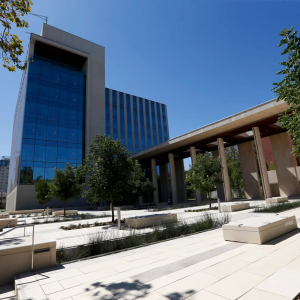 In 2012, a study of fifteen year-olds from 34 developed countries ranked U.S. students 17th, scoring 25th in math, 17th in science, and 14th in reading. Yet the U.S. ranked 5th in spending for students.
In 2012, a study of fifteen year-olds from 34 developed countries ranked U.S. students 17th, scoring 25th in math, 17th in science, and 14th in reading. Yet the U.S. ranked 5th in spending for students.
As a student from Los Angeles Unified School District, these dismal scores make complete sense to me. Amid the constant lay-offs that trashed the newest and usually most passionate teachers, I witnessed my tenured chemistry teacher watch Hulu in the back of the classroom and could not concentrate while my tenured biology teacher talked on the phone through our entire final.
So the question arises: Is it inept management and lack of funding or teacher protection laws (tenure) that are keeping these grossly ineffective teachers in public schools?
In May 2012, the nonprofit Students Matter filed a lawsuit on behalf of nine students and their families in Los Angeles County Superior Court in an attempt to overturn several of California’s controversial teacher protection laws. Theodore J. Boutrous Jr., the lead attorney who represents Students Matter, stated “The system is dysfunctional and arbitrary due to these outdated laws that handcuff school administrators.” Vergara vs. California was finally brought to court on January 27, 2014, and the case will continue until March.
The plaintiffs contend that the laws are a violation of the Constitution’s equal protection guarantee because they do not ensure all students have access to an adequate education. They argue that minority and low-income students are unfairly disadvantaged, as wealthier districts sidestep tenure by transferring the poor quality teachers to other, generally poorer, districts. This maneuver is what Gov. Arnold Schwarzenegger has called “the dance of the lemons.”
The lawsuit specifically targets three state statues regarding tenure. The Permanent Employment Statute forces administrators to either grant or deny permanent employment to K-12 teachers after only eighteen months in California, whereas the tenure track for college professors can require a record of published research and probationary periods of up to ten years. John Deasy, Los Angeles Unified School District Superintendent, explicitly said eighteen months is not enough time for administrators to decide whether or not teachers are effective.
The plaintiffs are also opposed to the “Last-In, First-Out” Layoff Statute, which requires administrators to lay off teachers based on reverse seniority, meaning new teachers get fired first, even if they are more effective than the tenured teachers.
Finally, the plaintiffs are opposed to three Dismissal Statues which make it very difficult, costly, and lengthy to fire low-performing tenured teachers. The process can drag on for years with charges, evaluations, hearings and appeals, requiring legal fees and money for paid leave and substitute teachers. Some school districts use separation agreements to avoid this process and get rid of poor quality teachers, which are buyouts that effectively pay a teacher to leave his or her job. According to Students Matter, in the past ten years, only 91 teachers have been dismissed in California, and only 19 dismissals were based, in whole or in part, on unsatisfactory performance. This contrasts to the findings of the 2013 PACE/Rossier survey of California voters which asked “what would have the post positive impact on public schools?” The top answer (43%) was “removing bad teachers from the classroom.”
The concept of tenure evolved with the late 19th century labor struggles, as teachers too demanded protection from parents and administrators who would try to dictate lesson plans or exclude controversial materials from reading lists. 1910 marked the first year tenured legislation was passed to protect senior college professors. In the 1920s rights were extended to elementary and high school teachers as well.
In 2008, roughly 2.3 million public school teachers in the U.S. had tenure. However, as William G. Tierney and Estela Mara Bensimon from the USC Education School wrote in their book Promotion and Tenure: Community and Socialization in Academe (1996), “In a curious twist, the tenure system has come to subvert what it was created to protect: academic freedom.” One could even argue that the original reasons for the implementation of tenure to protect controversial teaching material have no base anymore, as the No Child Left Behind Act has forced teachers to teach to standardized tests.

Governor Jerry Brown, the California Department of Education, State Superintendent of Public Education Tom Torlakson, and the two largest teacher’s unions— the California Teachers Association (CTA) and the California Federation of Teachers (CFT) – are opposed to the lawsuit. They say that the laws are essential for recruiting and retaining instructors who may not otherwise go into education, as well as protecting them from those who oppose subjects like evolutional biology. They argue that tenure has become a scapegoat for everything wrong with the U.S. educational system, when in fact underfunding, overcrowding and student home-lives are the real problems. If teachers are worried about job security, they contend, then the quality of teaching will inherently decrease. Additionally, Students Matter is financed and created by Silicon Valley technology magnate David Welch, which has created some backlash by those who say this lawsuit is just another instance of union busting. On February 20, attorneys representing the defendants filed a motion requesting that the Judge dismiss the case for lack of evidence.
Regardless of the fact that there are multiple contributors to our country and state’s low educational performance, tenure needs to be eliminated or significantly altered so that tenure is only awarded as a milestone after in depth consideration of performance. Inadequate teachers need to get out of the classroom and make way for those who genuinely care about teaching instead of just job security. Tenure has already been abolished already has been in Oregon, Connecticut, New York, Michigan, and Washington DC. If California can succeed in eliminating tenure, perhaps the movement will influence national legislature. Our system needs to be challenged so it does not fail our generation.
Featured Image Source: barnesandnoble.com/blog





Be First to Comment